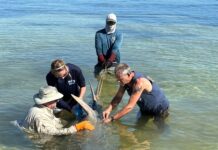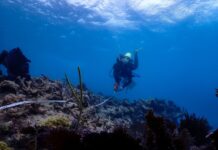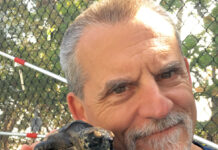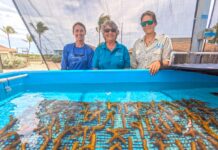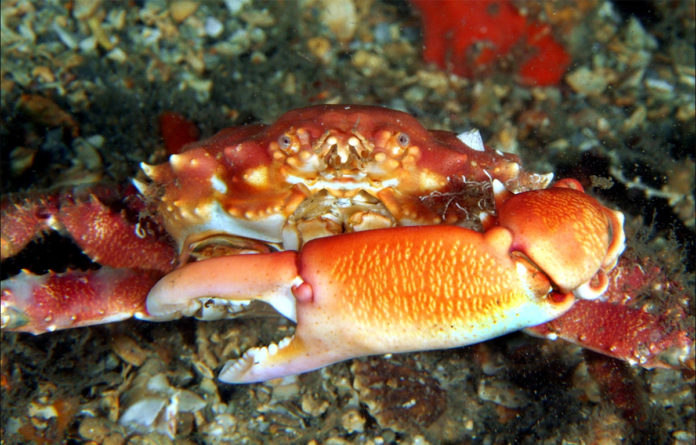
Conditions this past week were a little windy, and the northwest winds brought in some cooler temperatures. It’s not full-on wetsuit season yet, but it’s getting closer.
What type of exposure suit are you using? If you aren’t equipped for winter diving, it might be a good time to start thinking about how you’ll stay warm as temperatures continue to drop. Being cold on a dive is one of the surest ways to get sick and to not enjoy yourself.
When you do increase your thermal protection with neoprene, don’t forget to also increase your weights, to make sure you can hold your safety-stop at the end of your dive. Remember to do a buoyancy check at the beginning of any dive, but especially if you’re diving with a different exposure suit and/or weights.
Next Week’s Dive Report
The winds this week look great for diving. The cooler air (and colder water temperatures) will still be here. Topside, bring a sweater or boat coat aboard for warmth between dives. Pro Tip: bring some warm water in a Yeti or insulated cooler to pour over yourself to warm up.
Conservation Update
Really exciting things are happening for I.CARE. We just received a grant to add a new dimension to our coral restoration: coral clinging crabs (Mithrax-hispidus). Clinging crabs are the lawnmowers of the reef: they eat all the bad algae that grows on the corals. We will be adding coral clinging crabs to our coral babies in our nurseries to keep future outplants nice and clean. By reducing algal competition, we give our coral outplants the best chances of growing into healthy adult corals. Now, thanks to this grant, our coral plantings dives will also include placing coral clinging crabs onto outplants as well.
ICARE is the only coral restoration organization that is engaging in this amazing process. Are you ready to learn more and to help restore the entire reef? Give us a call.
Conservation Tip
When we talk about restoration, we really have to consider how we can restore the entire ecosystem. A coral reef works as a system, and any missing pieces can have ripple-out effects on the rest of the reef.
I.CARE Tip]
Maintenance is a critical part of coral restoration. This week, we conducted a few dives to past planting spots to monitor the plantings and remove any coral-eating snails we found.


















